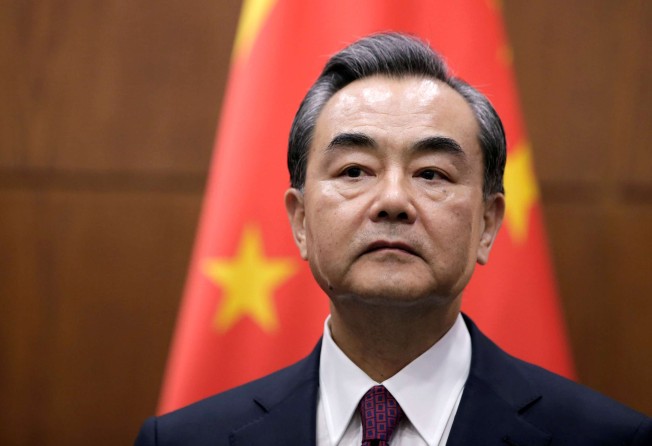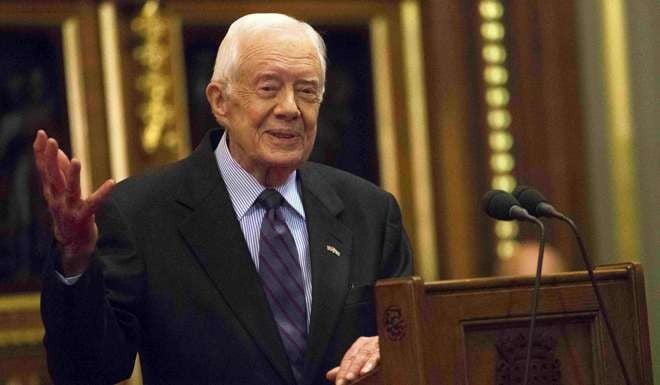Chinese foreign minister brushes off Trump call with Tsai as ‘petty trick’ by Taiwan

Beijing protested to Washington Saturday after US President-elect Donald Trump broke with decades of foreign policy and spoke with the president of Taiwan.
Foreign Ministry spokesman Geng Shuang said the mainland government had lodged solemn representations with the US, urging the American to honour its commitment to the one-China policy, Xinhua reported.
Also on Saturday, Chinese foreign minister Wang Yi said the unprecedented phone call between Trump and Taiwanese President Tsai Ing-wen was no more than “a petty trick” by Taipei, and it would not change international recognition of the one-China policy.
“This will never change the one-China consensus reached in the international community. I also believe that this will never change the one-China policy recognised by the US over the past years,” Wang told Hong Kong-based Phoenix TV on Saturday morning on the sideline of a foreign affairs forum in Beijing.
“Sticking to the one-China principle is the cornerstone of the healthy development of Sino-US ties. We hope nothing will disturb or damage this political foundation.”
The mainland’s Taiwan Affairs Office (MAO) under the State Council on Saturday reiterated its stance against Taiwan independence after the call.
“We are determined, confident and capable of containing Taiwan independence in any form and pushing forward the national reunification process,” An Fengshan, spokesperson for the office, said.
The phone call was the first such contact with Taiwan by a US president-elect or president since Jimmy Carter switched diplomatic recognition from Taipei to Beijing in 1979, acknowledging Taiwan as part of “one China”.

In Taipei, presidential spokesman Alex Huang shrugged off Wang’s remarks about the call.
“We feel that maintaining good US-Taiwan ties and cross-strait relations are equally important. This is in line with our national interest to do so . After all, good cross-strait and US-Taiwan ties are the key to peace and stability in the region, and this is what our government must strive to achieve.”
The mainland regards self-ruling Taiwan after their split in 1949 as part of its own territory awaiting reunification under Beijing’s rule, and any US move that would imply support for independence would likely trigger fury.
It was not immediately clear whether Trump’s 10-minute telephone call with Tsai, at around 11pm Hong Kong time last night, marked a deliberate pivot away from Washington’s official stance, but fuelled fears he is improvising on international affairs.
As he came under fire for the move, Trump defended his decision to speak with Tsai, saying the island’s president initiated the call.
“Interesting how the US sells Taiwan billions of dollars of military equipment but I should not accept a congratulatory call,” Trump tweeted.
Earlier on Friday, Beijing separately expressed concern that an annual US defence policy bill suggested a plan to conduct high-level military exchanges with Taiwan. The US$618.7 billion National Defence Authorisation Act will likely come up for a vote in the US House of Representatives this week, and the Senate next week.
Part of the bill “expresses the sense of Congress that [the US Department of Defence] should conduct a programme of senior military exchanges between the United States and Taiwan”.
Additional reporting by Agence France-Presse and Reuters